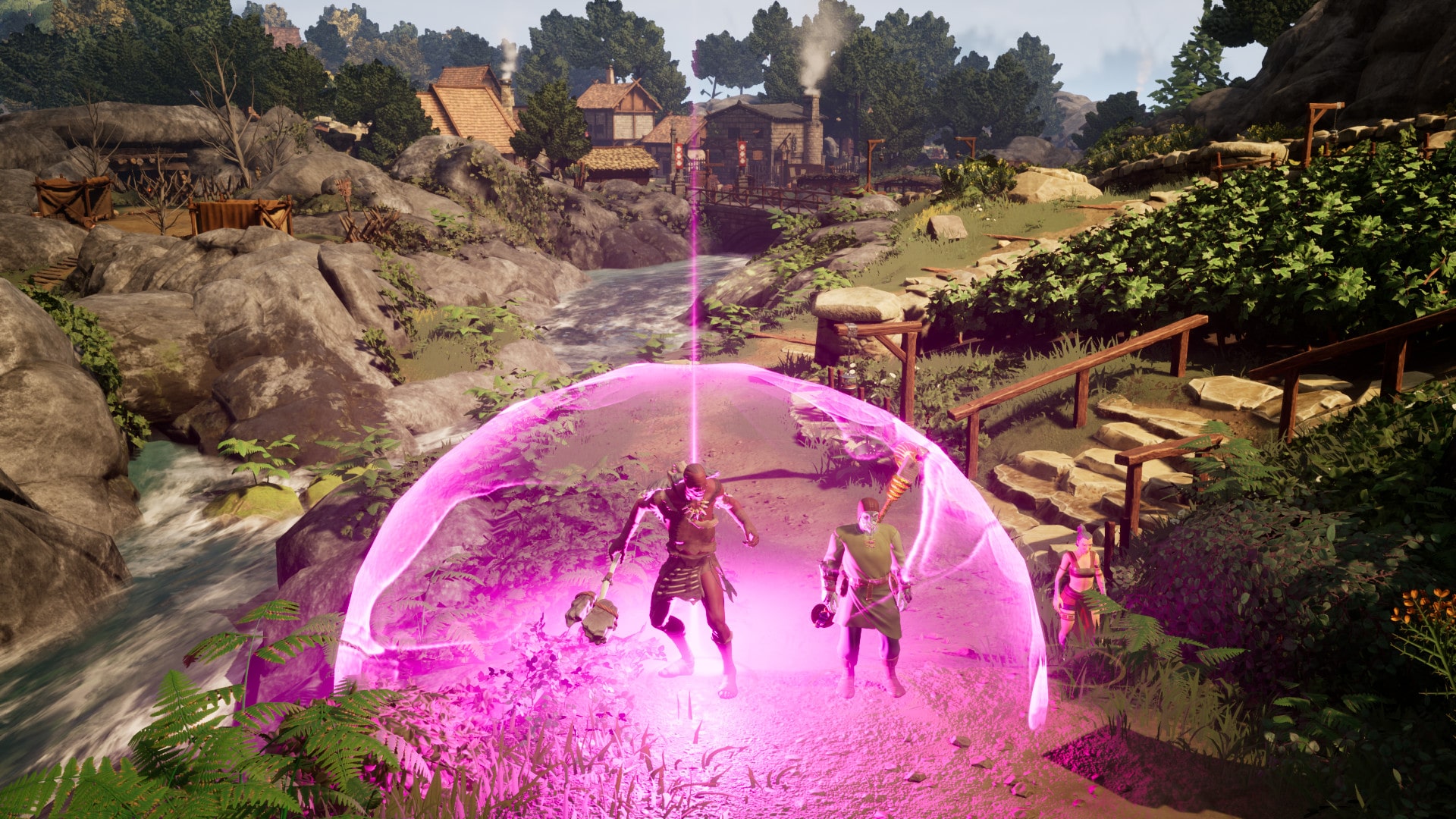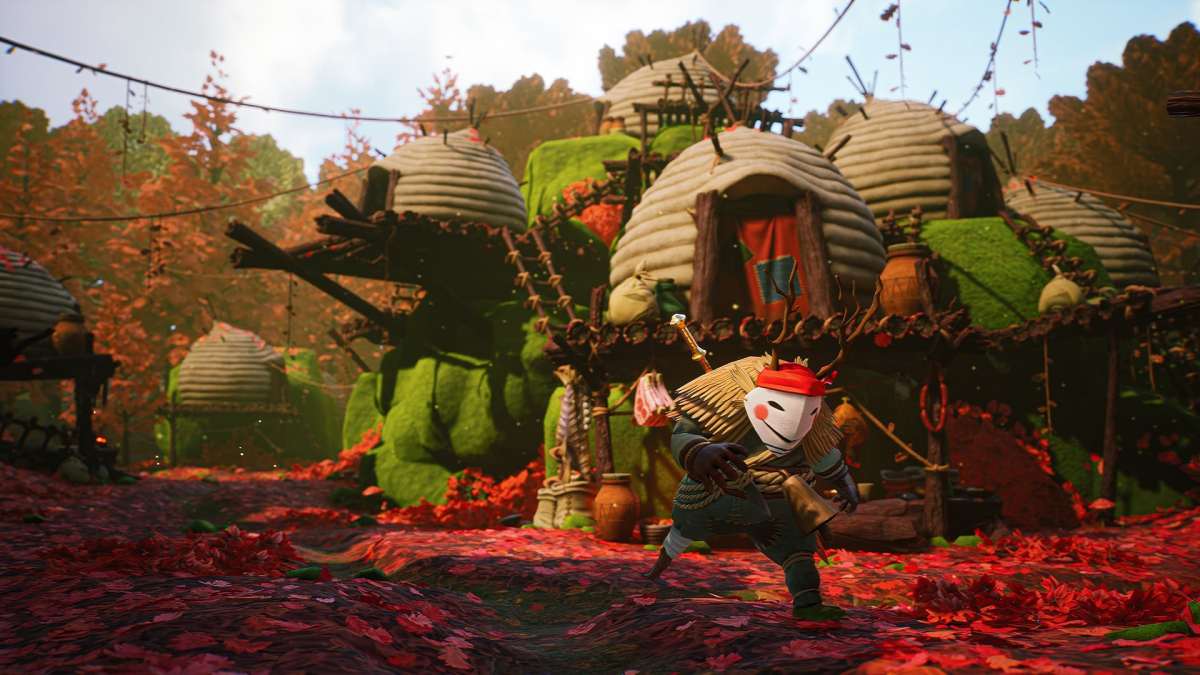Why do we play role-playing games (RPGs)? The answer will vary subtly for everyone, but a common answer is that people play for the story.
In Western RPGs, there’s often an element of player choice, as well – the role-playing in RPG. It might seem fairly simple to tell a story in an RPG, given that so many follow the same formula. Put some people on an adventure, send them from place to place fighting things, and end it with defeating some sort of boss.
Yet, this simplicity belies the difficulty of doing it correctly, and no game has reminded me of that more than The Waylanders.
The Waylanders begins with your character on a journey to meet the gods. When this goes wrong, corruption spreads across the land, enveloping the gods. The king is dead, a succession conflict grows into a full-blown war, and your character is at the center of it all, a magically chosen one who can influence everything.
With these specific narrative parameters established, there are a couple of obvious directions the story could go. Maybe you have to deal with the effects of the corruption and try to find the source. Maybe you have to shift the balance of power in the civil war.

Instead, The Waylanders gives you half a dozen different quests. Most of them are in fact requests to come speak to a character who wants your help. However, you can travel anywhere instantly on your boat, so you’re unmoored from the world. And since you’re safely removed from it all, there’s no explicit reason to pick the quest where you’re asked to investigate the corruption over the quest where a guy is having trouble with wolves attacking his pigs. There isn’t even a clear way to address the corruption until you finally talk to a character who tells you how to go about it.
The issue here is urgency. In games like Dragon Age, you’re in a specific place in the world, so you can’t escape the consequences and issues of that place. In the first Dragon Age, the king is also dead, and a Blight also threatens to end humanity unless you, the last Grey Wardens, stop it. There’s nobody asking to speak to you because the problem is right in front of your face. Even when new objectives and sidequests appear, they spin off that core goal of defeating the Blight and surviving.
I would argue that urgency is core to maintaining the illusion of an RPG. If the main quest doesn’t feel urgent, then the main quest no longer aligns with the goals of the player, and it feels like you’re being railroaded – which you are. There’s no way to provide complete choice to the player. There must always be rails, and to make them as invisible as possible, you need the player to want to go the same direction the rails are taking them.
Low urgency as seen in The Waylanders also has the pesky side effect of sapping the game’s momentum. When I realized there was no clear path towards defeating the corruption, I legitimately thought I could just stop playing right there and be satisfied enough with the story. No question was being asked, no answers were teased, just a vague “Talk to these characters and see what they have to say.”
Attachment to a game extends beyond its core plot though. Great characters create a connection with the player as well, and Dragon Age absolutely has compelling characters. I would have kept playing that game just to learn more about Leliana, Morrigan, and my Mabari war hound even if the story hadn’t been as strong as it was. Meanwhile, The Waylanders struggles with this aspect of the game, with the companions not having as much to say or lacking the depth of my Dragon Age favorites, partially due to poor writing and perhaps due to having too many companions.
Ultimately, the reason we finish an RPG is because we feel compelled to find out what happens next. The Waylanders shows us that when you don’t feel an RPG’s story must be completed now, you might have no reason to play at all.






Published: Feb 8, 2022 12:00 pm